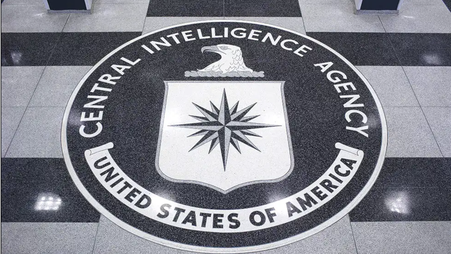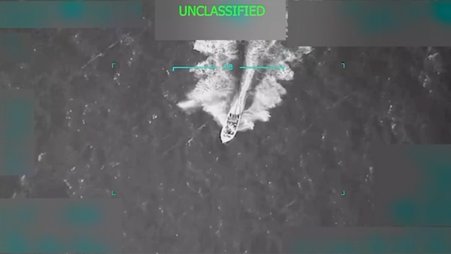Dear Friend of Press Freedom,
I’m Lauren Harper, the first Daniel Ellsberg chair on government secrecy at Freedom of the Press Foundation (FPF), and welcome to “The Classifieds.” Read on for a new perspective on Signalgate, and much more of this week’s top secrecy news stories.
A different perspective on Signalgate
You’ve probably read about Atlantic editor-in-chief Jeffrey Goldberg being unwittingly invited to a Signal chat discussing war plans, and I won’t reiterate previous reporting. But I will offer some important points that have not yet been widely raised.
A strong argument can be made that the Signal chat Goldberg was mistakenly invited to be a part of is a presidential record. This would have important preservation implications.
The chat was between members of the National Security Council’s Principals Committee and was likely organized by NSC staffers. This is important because the NSC is part of the Executive Office of the President, and is not subject to the Freedom of Information Act, nor is it subject to the Federal Records Act’s preservation requirements.
The NSC is a Presidential Records Act entity, meaning the president and their immediate staff are responsible for its records preservation policies. It also means its records must be permanently preserved.
President Donald Trump demonstrated during his first term that he does not take this responsibility seriously, and that there are no effective enforcement mechanisms when presidents willfully disregard their own preservation rules.
Signalgate should have us asking: If NSC’s presidential records are being improperly handled, who is ensuring other presidential records aren’t being treated similarly? (The Department of Government Efficiency conveniently released a one page records policy this week stating its obligations under the PRA, which states that if messages are sent over Signal they must be transferred to government systems. Troublingly, it says screenshots are sufficient for this purpose — they aren't.)
We should also ask why Marco Rubio didn’t object to Signal as a forum for the Principal’s Committee meeting, especially if he could see that some of the chats were scheduled to be deleted after a week. Rubio participated in the chat in his capacity as Secretary of State, but it was his responsibility as acting archivist of the United States to investigate when presidential records, like those belonging to the NSC, are improperly destroyed.
While the fate of the public’s right to know hangs in the balance following the Signalgate revelations, at least all sides of the internet are having fun with it.
Before the court
I’ve made the argument that the Signal chat is likely a presidential record, but others take a different view. American Oversight filed a lawsuit against officials in the chat for their failure to preserve records under the Federal Records Act. (An important point to emphasize is that a record can not be both federal and presidential.) Their case is assigned to U.S.Circuit Judge James Boasberg, who ordered the government to preserve the records as the case moves forward. This is good news, regardless of whether the records are presidential or federal.
Judge Boasberg is also presiding over the case concerning the government’s deportation of Venezuelans under the Alien Enemies Act. The government recently claimed state secrets privilege in this case, and is taking the extraordinary step of denying Judge Boasberg the ability to even review the material it believes would harm national security if made public, including basic flight data — similar to what was disclosed in the Signal chat.
New executive order could hint at new classification rules
I recently wrote about a new executive order, ostensibly intended to stop “waste, fraud, and abuse by eliminating information silos,” that got buried in all of the Signalgate news this week.
But the order deserves attention.
It has the potential to grant the Department of Government Efficiency more control over agency records, and hints that the Trump administration may be considering issuing a new executive order on classification.
Both could spell bad news for the public’s right to know. Read the whole story on our website.
What I’m reading
House Dems cite ‘fundamental conflict’ of Rubio’s acting appointments atop USAID and National Archives (GovExec). I’ve written about how problematic it is that Marco Rubio is both the acting administrator of the U.S. Agency for International Development, which is capriciously destroying records, and the acting archivist of the United States, responsible for investigating that destruction. Democrats on the House Oversight Committee agree, and have demanded Rubio conduct a review of all records disposal investigations and update the committee by April 7, 2025.
White House scraps public spending database (Roll Call). The Office of Management and Budget has taken down its public appointment website, “where approvals of federal funding provided in appropriations laws are statutorily required to be posted for public viewing.” OMB is making the spurious argument that the data being public could harm national security, even though no harm has yet come to national security as a result of the information being public.
Thanks for reading, and see you next time.
Transparently yours,
Lauren Harper
Daniel Ellsberg Chair on Government Secrecy
Freedom of the Press Foundation





